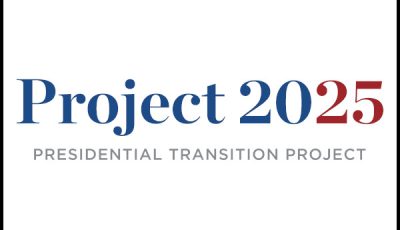SC Lawmakers: ‘Pay the State to Access Porn’
 COLUMBIA, S.C. – Two South Carolina legislators want the state to require internet access providers to block residents from accessing online pornography unless the residents pay a fee to have filters removed.
COLUMBIA, S.C. – Two South Carolina legislators want the state to require internet access providers to block residents from accessing online pornography unless the residents pay a fee to have filters removed.
The bill, called the Human Trafficking Prevention Act, echoes the automatic content filters imposed by British law in 2013. Proposed by Republican Reps. Mike Burns and Bill Chumley, the South Carolina legislation would mandate ISPs and cellphone companies suppress all sexual content except to end-users who submit a written request and pay a $20 fee to remove the block. Consumers also would have to provide identification proving they are at least 18 years of age and view a warning about the potential dangers of pornography.
The bill also would establish a process for handling over-blocking and under-blocking.
The South Carolina proposal is based on so-called “model legislation” being hawked by Chris Sevier, a former attorney whose law license was placed on “disability inactive” status in 2011 after a number of stunts and lawsuits convinced the Tennessee bar his mental stability was a little wobbly. Sevier has sued Apple and other tech giants because consumers may view porn on devices they manufacture, and he once petitioned the court to allow him to marry his laptop as part of an over-the-top protest of same-sex marriage.
Sevier claims legislation based on his model bill is under consideration in 25 states. He views the proposed law as a common-sense solution to what he sees as the menace of rampant smut.
“This is not an attempt to legislate morality,” he told Columbia’s Free Times newspaper. “This is not a porn prohibition crusade. This doesn’t get rid of pornography. It just makes it where, by default, consumers are opted out.
“Adult consumers who want to opt in, they have to take the extra step [under the proposed law],” Sevier continued. Currently, “individuals who don’t want to be exposed to that content have to take extra steps… It’s just kind of like a burden-shifting scenario.”
The U.K.’s mandatory filtering law has been largely unsuccessful. Not only do the filters both under- and over-block content, but most U.K. residents have opted out. U.K. ISPs do not charge to remove the filters.
Jay Bender, a South Carolina attorney specializing in First Amendment issues, indicated he thinks the proposed legislation is … well, in a word, ridiculous. For one thing, the bill refers to all adult content as “obscenity.”
“Before something can be declared obscene, there has to be a court determination,” he told the Free Times.
For another, denying adults access to material that might not be appropriate for children presents significant First Amendment issues.
Censorship trial balloons, he said, are just a form of toothless grandstanding.
“It’s just another one of those pieces of legislation people try to pass to fool their constituents into thinking they’re getting something done,” Bender told the newspaper.
For his part, Sevier said he believes the proposed legislation could put an end to human trafficking and violence against women, both of which he blames on the adult industry.
“This bill single-handedly is the greatest blow to human trafficking,” he told the Free-Times, saying should it become law, the mandate would reduce the demand for “sexual voyeurism” and, consequently, pornography. [We didn’t say he made sense. –Ed.]













